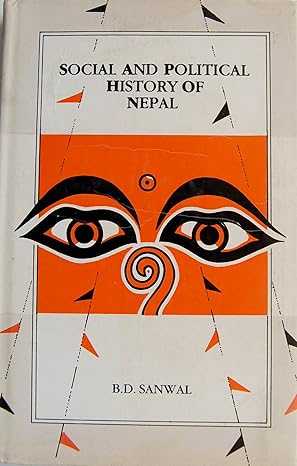Social and Political History of Nepal
Availability :
In Stock
₹ 821.25
M.R.P.:₹ 1095
You
Save: ₹273.75 (25.00% OFF)
(Inclusive
of all taxes)
Delivery:
₹ 60.00 Delivery charge
Author:
B. D. Sanwal
Publisher:
Manohar Publishers
ISBN-13:
9788173040214
Publishing Year:
2021
No. of Pages:
240
Weight:
476 g
Language:
English
Book Binding:
Hardcover











